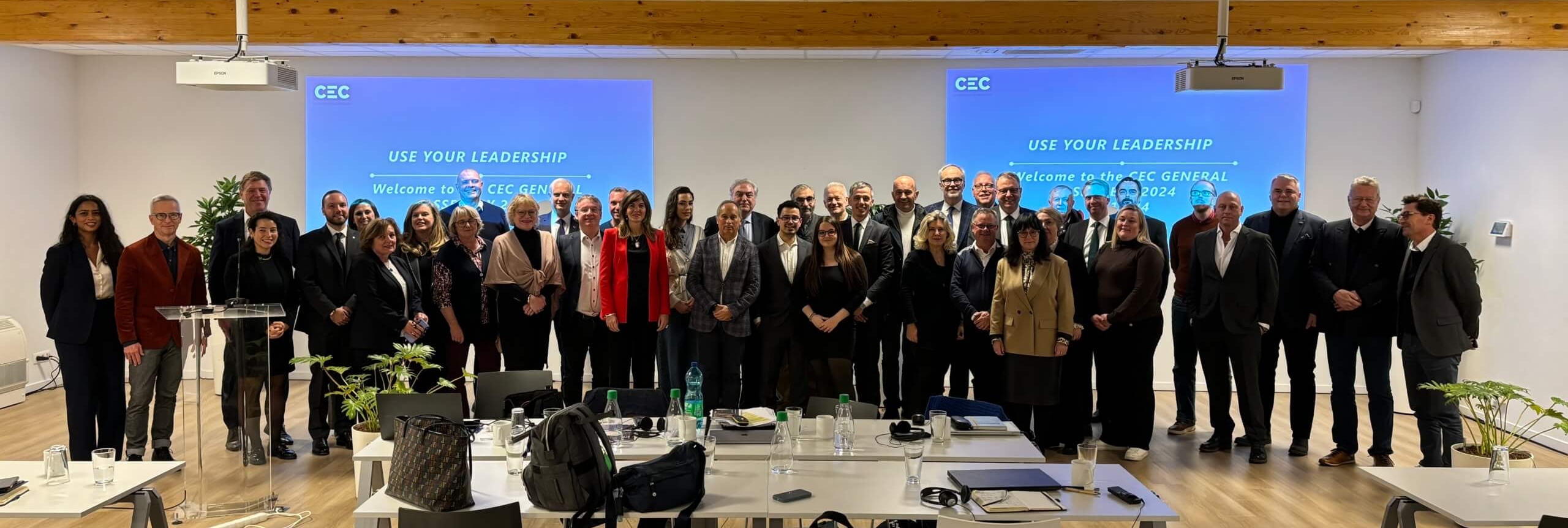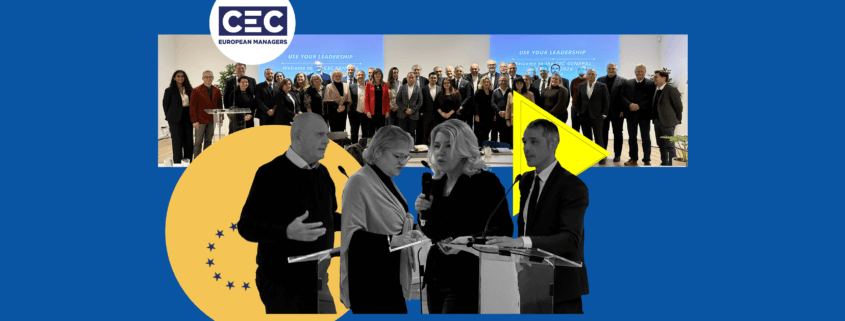From Copenhagen to Brussels: CEC’s Strategic Evolution Unveiled at General Assembly
On 26 November 2024 Brussels became the hub of European leadership vision and strategy as the Conféderation Européenne des Cadres (CEC European Managers) held its General Assembly.
Most member organisations from the 15 European countries within the confederation were represented and exchanged ideas at a distinguished venue (AC Events) adjacent to the European Commission in the EU Quarter.
This high-profile meeting marked a significant milestone. It was the first gathering since the election of a new executive board, which took place in Denmark on June 6, 2024. Six months after the election, the renewed mandate and the fresh strategic direction showcased some of the first results close to the confederation’s headquarters in the European Union capital.

The assembly was a platform for reviewing progress and aligning on future strategies. Following insights from the previous gathering in Copenhagen, the new leadership emphasized new challenges in social dialogue, AI integration, and Europe’s competitive positioning in the global landscape.
Member organisations highlighted the urgent need for regular updates on EU parliamentary discussions, improved communication of CEC activities, and greater European visibility.
Social Dialogue and Economic Leadership
President Ursula von der Leyen’s commitment to strengthening social dialogue across Europe received praise, “it is good news she is continuing at the EU Commission“, said President Maxime Legrand.
Urusula von der Leyen aims to use social dialogue to strengthen competitiveness, and this is good news for us.
Maxime Legrand
President CEC European Managers
General Assembly participants reaffirmed managers’ vital role in fostering innovation, economic resilience, and social equity. Discussions tackled geopolitical and economic challenges, including the war in Ukraine and energy sustainability, with a consensus on adopting collective European strategies to maintain competitiveness without sacrificing the EU’s social model.
CEC European Managers at COP29
Torkild Justesen, CEC’s Secretary General, explained his accreditation process for participating in the United Nations Climate Change Conference COP29 and the significant number of meetings he had the chance to organize and attend. “When I was at COP29 I was representing CEC European Managers, which talks for 1M leaders in Europe, but I was also speaking for the rest of 10M EU managers,” he said.
Justesen, together with his member organisation Lederne (from Denmark) explained the reasons behind to efforts made to put Climate Leadership as one of the leading concepts in the debates concerning the implementation of green transitions.
AI, Sustainability, and Crisis Preparedness
The integration of Artificial Intelligence (AI) into managerial practices was a widely discussed subject. One of the important working groups of CEC’s Confederation is monitoring the evolution of the current legislation on AI, and CEC European Managers has been participating in workshops with the EU institutions on that matter.
Leaders underlined AI’s transformative potential while advocating for frameworks that ensure its ethical use and safeguard workers’ rights. In that sense, CEC has launched an ambitious proposal on AI management with the EU Commission.
An ambitious agenda for the future
With an ambitious agenda with interesting meetings, communication and dissemination efforts, and EU Projects, CEC European Managers reaffirmed its commitment to fostering leadership, innovation, and sustainability.
Also, national member organisations took the floor. They made their petitions and requests to the board, underscoring the need to be more updated on the Brussels agenda in order to continue their tasks monitoring the legislative work of the EU institutions and defend social and workers’ rights more efficiently.
The following General Assembly, set for June 2025 in Milan, promises to advance these priorities, focusing on delivering tangible benefits for member organizations, including increased capacity building, advocacy tools, and direct access to EU decision-makers.
This Brussels gathering underscored that European leaders’ collective vision and action are essential for navigating today’s global complexities and shaping a competitive future for Europe.




